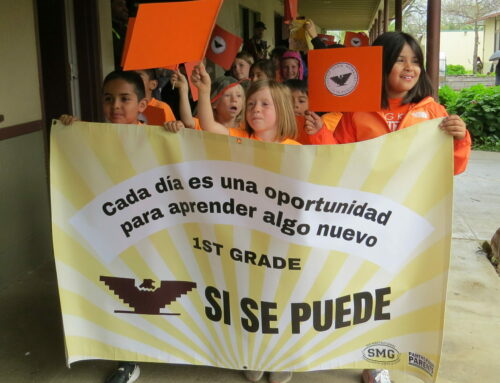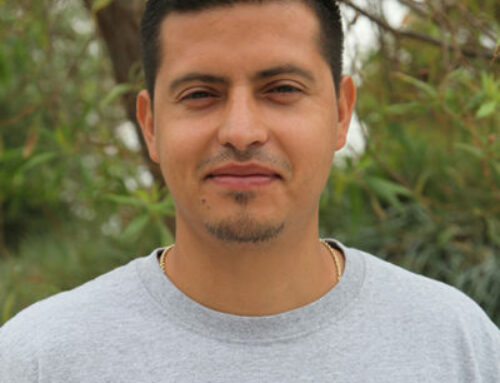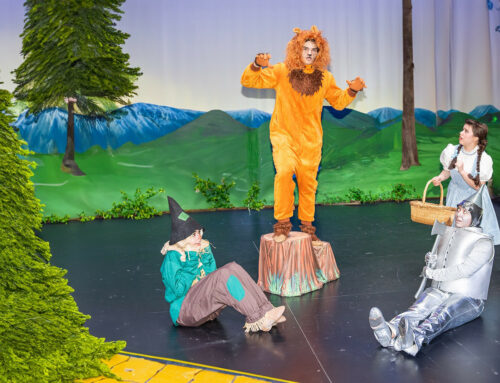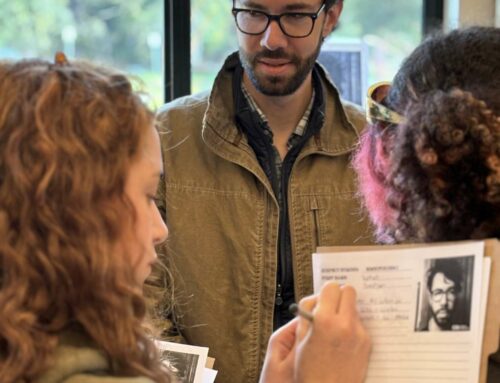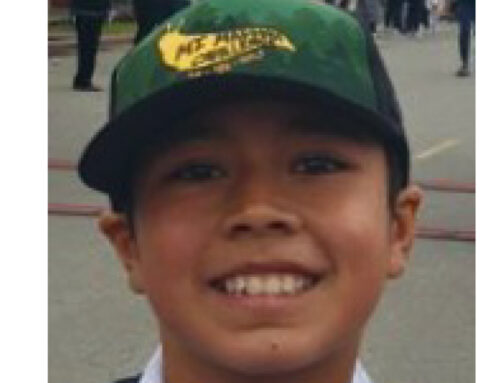‘The Spooky Sleepover’ is the second in the “Monster School” series
Published in the June 25-July 8, 2014 issue of Morgan Hill Life

Dave Keane, author of ‘Monster School: The Spooky Sleepover,’ will appear at BookSmart July 12.
By Staff Report
Inspired by his kids, Morgan Hill resident Dave Keane has been writing and illustrating children’s books for more than a decade. His latest story, “Monster School: The Spooky Sleepover,” was published this month by HarperCollins as part of the I Can Read series for beginning readers.
Keane will visit Morgan Hill’s downtown BookSmart bookstore 11 a.m. July 12 to introduce his new book to youngsters. Morgan Hill Life asked the author about what it takes to write books for children.
You’ve been very successful in your writing career. Why do you enjoy creating books for children?
I originally got the idea from reading my three kids so many dang books. I thought, “Hey, I should give this a try.” At first, the notion of actually becoming a legitimate, published author seemed impossible. The odds were slim. It was like deciding to star in movies or be a major league ballplayer. But with tons of hard work, passion and persistence, it happened. Now my books entertain kids around the world, and I’ve gotten to visit schools all around the country—from Morgan Hill to Connecticut.
Describe your latest Monster School book “The Spooky Sleepover” and why it’s fun for young readers.
It’s surprisingly challenging to create books for first-time readers, but I love hearing from parents who tell me that one of my books was the first book their child ever read by themselves. “The Spooky Sleepover” is the second in the “Monster School” series. In the first book, a boy named Norm shows up at his new school, and it turns out that every kid there is a monster, and he’s just… well, normal. The second book is about Norm sleeping over in the school library with his monstrous classmates.
What inspired you to create your Monster School series?
When I was growing up, I enjoyed watching old, black and white monster movies. I loved ‘em! Dracula. The Mummy. Wolf Man. Frankenstein. All those characters still live in my head. I wanted to write school stories with a fish-out-of-water angle, so I just combined that idea with those old-time monsters I loved so much. I knew kids would relate to feeling odd at a new school. And kids love the silly, gross-out humor. When the girl with two heads gets in trouble for peeking at her own test, or the boy with ten eyeballs cries his eyes out, kids totally get it.
Describe your style of creating a book for children.
I’ve written picture books, beginning readers and middle grade fiction. Most have humor in common. I’ve always loved entertaining people and making them laugh. Like most writers, I’m driven to tell stories. All my books start with a simple idea, but they require a lot of tweaking and revision to get them just right. It takes a lot of work to be simple, brief and hilarious all at the same time. It’s like walking a tightrope – when it goes wrong the silence is deafening.
How might you encourage children to read more — especially during the summer months when they are out of school?
My wife and I created a real book culture at our house from the time our kids were toddlers. A couple of times a week — every week! — we’d go to the library and check out stacks of books — fiction, non-fiction, poetry, comics… whatever! Lots of choices. They may only read 10 percent of them, but you can figure out what their tastes are by the ones you see them reading. For example, once I saw my son preferred spooky books and R.L. Stine, we were off to the races. He got hooked on “Goosebumps” and he turned into a reading machine. He remains one today.
What advice do you give parents in selecting books for their kids — or helping kids pick books for themselves?
Don’t be judgmental. If your kids are reading “Captain Underpants” or “Joe Sherlock” or “Junie B. Jones” for fun in the second grade, they’ll be reading something else for fun when they’re teenagers. It’s essential for kids to link fun to books and reading, which is often not the case in school. In school, books are forced upon them and, before long, reading and books come to be associated with boring homework, elaborate book reports and tests. Summer is the time to read whatever they want and explore their interests. I still bring books home for my kids—and I don’t care if they roll their eyes.


